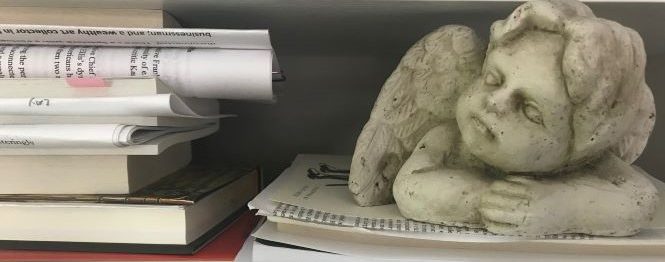A package arrives for the widowed Lesley Hamlyn in 1947. Lesley is living on a sheep farm in South Africa. Inside the heavy brown paper secured with twine, she discovers a book of short stories by William Somerset Maugham, The Casuarina Tree. There’s no letter, no note, no inscription, but the hamsa on the title page, “a Moorish sign to ward off the evil eye” that Somerset Maugham placed in his books, is unusually marked with inked-in lines.

The event mysteriously begins Tan Twan Eng’s new novel. It triggers a return to 1921 when Somerset Maugham and his secretary Gerald Haxton stayed with Lesley and her husband Robert at their home on the island of Penang. You might recognize Somerset Maugham. He’s the famous 20th century British novelist, short story writer, and playwright best known for his novels Of Human Bondage and The Razor’s Edge.
Chapters alternate between the perspectives of Lesley and the British author in a tale that blurs fiction and nonfiction. There are Somerset Maugham’s financial troubles, his problematic marriage back in London, and his love relationship with Gerald. As for the fictional Lesley, the author’s presence reminds her of another traveler who once visited Penang, a Chinese exile, the revolutionary Dr. Sun Yat Sen. She begins a search to find out what’s happening to him.
It’s hard to know where the lead story exists, what with both plotlines — the famous British author’s visit with the Hamlyns, and then Lesley’s quiet obsession with the revolutionary — carrying equal weight. But that quickly changes when Lesley decides to reveal to Somerset Maugham what took place during Dr. Sun’s six months on the Malay island. It’s risky. She knows full well the author will use her precious secret as material for his work.
Yes, I thought to myself. Tell him your story. Let him write it. Let the whole world know.
Dr. Sun arrived in 1910 to raise money for his campaign against China’s corrupt dynasty. At the same time, Lesley’s best friend Ethel Proudlock confessed to fatally shooting a British man whom she claimed attempted to rape her. It was a horror show of scandal in the British expatriate community. Lesley attended the inquest and trial in Kuala Lumpur. At last, this new novel by Tan Twan Eng enters the emotional and dramatic territory it’s been missing, and not because of the crime alone: Lesley discovered her husband was having an affair with his law firm assistant, Peter Ong.
By telling my tale to Willie, I was betraying not only Robert, but Ethel as well. And yet I must confess that it had felt liberating to tell my story to this man sitting in the half-shadows, this gentleman in my parlor.
Ethel Proudlock, like William Somerset Maugham and Dr. Sun Yat Sen, is a real-life character. Somerset Maugham fictionalized her sensational crime in his short story “The Letter,” which also became a play and a movie, the latter staring Bette Davis. In The House of Doors, Tan Twan Eng creates a fully imagined world of how Somerset Maugham heard about Ethel Proudlock.
So many individual storylines get wrapped into this many layered narrative: William Somerset Maugham’s presence and its implications, Dr. Sun’s fight against the decaying Manchu dynasty, British colonial history that drove me to maps so I could understand its boundaries, Ethel’s claims and testimony, and Lesley’s stoic reserve, her secret held close. They all connect, but they also feel a beat off from one another, the elements of fiction and nonfiction touching but never fully integrating. Put another way, the mechanics perfected but the soul missed. And yet, each storyline alone fascinates.
Lesley’s secret (I’ve been careful not to spoil it here) and the meaning of this novel’s title relate to the book received in South Africa decades later, in 1947. Only Lesley would understand the lines drawn over the symbol on the title page, what others would misinterpret as idle doodling, not a cryptic message. In the end, however, we understand them too, and we know what will happen next.
The House of Doors, published by Bloomsbury, was released this week. A version of this review was recorded for broadcast on NPR member station WOSU 89.7 FM.
